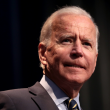President Joe Biden has executed the largest single-day act of clemency in modern history by commuting roughly 1,500 sentences and pardoning 39 Americans convicted of nonviolent crimes.
The commutations primarily target individuals released from prison during the pandemic and placed on home confinement to prevent the spread of COVID-19 in prisons, showcasing the administration’s response to the virus’s impact on the incarcerated population.
What he’s saying: Biden emphasized the importance of offering second chances and restoring opportunities for those who have shown remorse and rehabilitation, particularly for non-violent offenders, especially those convicted of drug offenses.
- “America was built on the promise of possibility and second chances,” Biden said in a statement. “As president, I have the great privilege of extending mercy to people who have demonstrated remorse and rehabilitation, restoring opportunity for Americans to participate in daily life and contribute to their communities, and taking steps to remove sentencing disparities for non-violent offenders, especially those convicted of drug offenses.”
The big picture: The clemency grants also include individuals who have demonstrated significant efforts towards personal growth and community service, such as emergency responders, addiction counselors, youth counselors, doctoral students, and military veterans.
- While advocating for broader pardons, Biden is facing pressure to consider preemptive pardons for those involved in investigating Trump’s election challenges and possible retaliation under a new administration.
- Calls for additional clemency actions extend to advocating for the pardon of environmental and human rights lawyer Steven Donziger and commuting the sentences of federal death row prisoners, highlighting the broader social justice implications of the presidential clemency power.
What we’re watching: As Biden moves forward with granting further clemency actions before leaving office, there are discussions surrounding the possibility of guards against potential prosecution by the incoming administration, demonstrating the complex considerations involved in utilizing executive clemency powers effectively.










